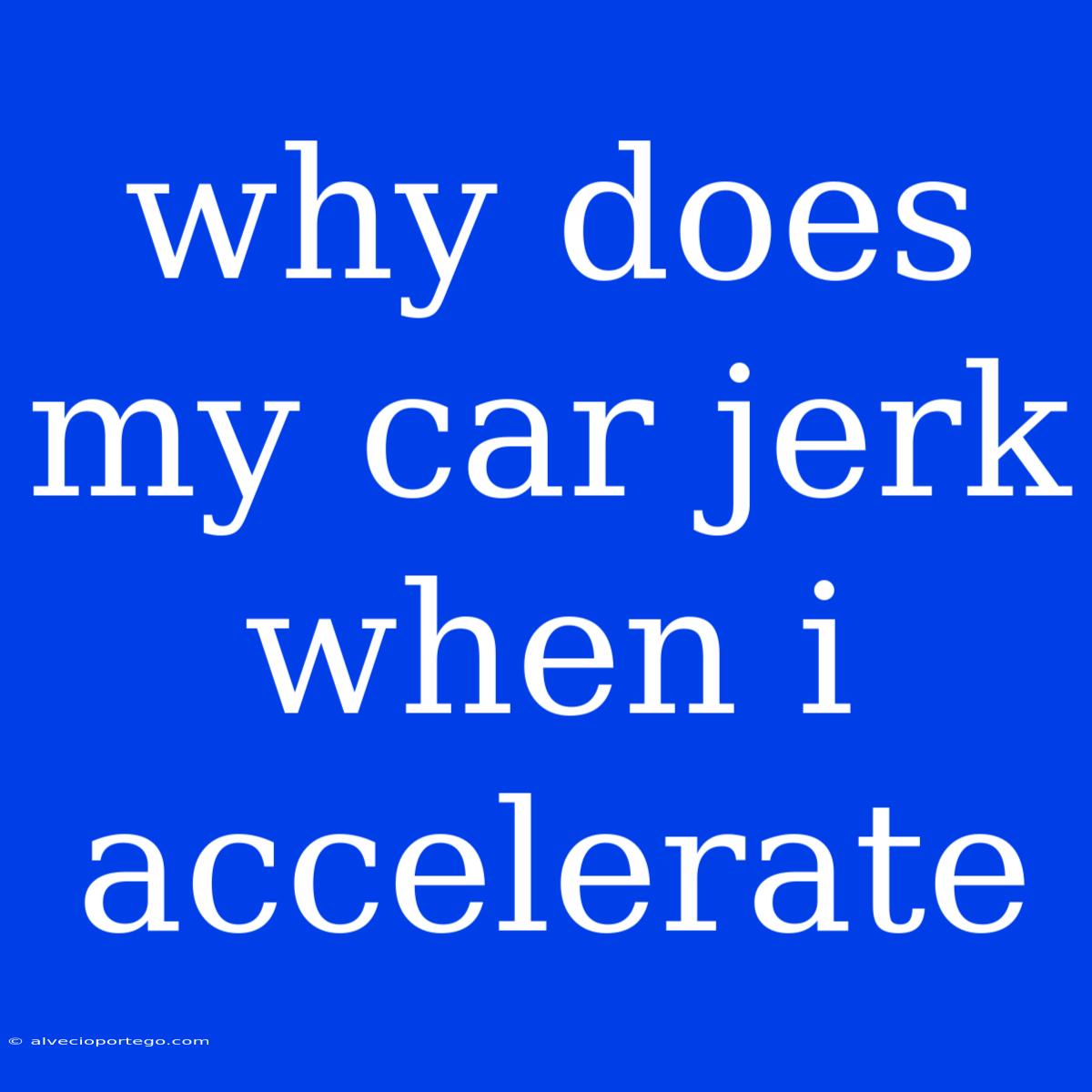Why Does My Car Jerk When I Accelerate?
Experiencing a jerking sensation when you accelerate can be alarming and frustrating. It could indicate a variety of issues, ranging from minor inconveniences to more serious problems. Here's a breakdown of the most common culprits behind a jerking car:
1. Spark Plugs and Ignition System:
- The Problem: Worn-out or fouled spark plugs can misfire, leading to inconsistent combustion and a jerking sensation. Other ignition system components like the ignition coil or wires can also malfunction, causing similar issues.
- Symptoms: Jerking, especially at lower RPMs or during acceleration. The engine may also misfire or experience a loss of power.
- Solution: Replace faulty spark plugs and inspect other ignition components. A mechanic can perform a diagnostic check to identify the specific issue.
2. Fuel System Problems:
- The Problem: A clogged fuel filter, faulty fuel pump, or issues with the fuel injectors can restrict fuel flow, resulting in inconsistent fuel delivery.
- Symptoms: Jerking, especially during acceleration. The engine may also hesitate or struggle to start.
- Solution: Inspect and replace the fuel filter, check the fuel pump pressure, and clean or replace fuel injectors as needed.
3. Transmission Issues:
- The Problem: Problems with the transmission, such as worn-out clutch plates or a faulty transmission control module (TCM), can lead to slipping or erratic gear changes, causing jerking.
- Symptoms: Jerking during gear shifts, particularly when accelerating. You may also experience slipping or delayed engagement.
- Solution: Have the transmission inspected by a qualified mechanic. A transmission fluid flush and filter change can help address some issues.
4. Engine Problems:
- The Problem: Worn-out engine components, such as the timing belt or chain, or a faulty oxygen sensor can contribute to erratic engine operation and jerking.
- Symptoms: Jerking, especially at higher speeds or under load. The engine may also run rough or exhibit other performance issues.
- Solution: Inspect and replace worn-out engine components. Addressing any engine-related issues is crucial.
5. Other Factors:
- Dirty Air Filter: A clogged air filter can restrict airflow to the engine, causing a drop in performance and potential jerking.
- Loose or Broken Engine Mounts: Damaged engine mounts can allow the engine to move excessively, leading to vibrations and a jerking sensation.
- Vacuum Leak: A leak in the vacuum system can disrupt engine operation, leading to inconsistent performance and jerking.
What to Do:
- Observe and Note: Carefully observe the conditions under which the jerking occurs. This information can help your mechanic pinpoint the issue.
- Check Warning Lights: Pay attention to any warning lights on your dashboard, such as the check engine light, as they may provide clues to the problem.
- Seek Professional Help: It's generally advisable to have a mechanic diagnose the jerking problem. They can perform tests and inspections to identify the root cause and recommend the appropriate solution.
Remember: Don't ignore a jerking car. Addressing the problem early can prevent further damage and ensure your safety on the road.

